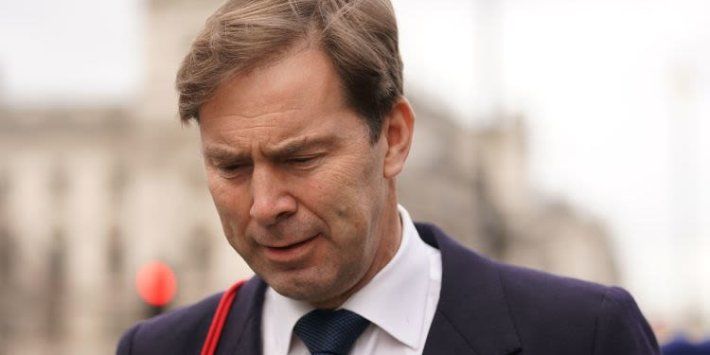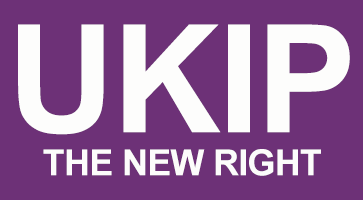Brexit: Ellwood’s sloppy thinking
News & Social Media / Post
Tory remainers want to wind back the clock

A senior Conservative backbencher has suggested Britain should rejoin the single market to ease the cost of living crisis. Tobias Ellwood, the chairman of the Commons defence select committee, said that “radical thinking” was required to tackle rising inflation, even if it meant accepting EU regulations and freedom of movement.
The MP said politicians “must dare to assess how Brexit, the biggest geopolitical decision in a generation, is faring”. In an article published by the PoliticsHome website, Mr Ellwood said that the decision to leave the single market, which was “not on the ballot paper” in the 2016 Brexit referendum, has had adverse consequences, including a £20 billion fall in exports and difficulty on the Irish border. “In a nutshell, all these challenges would disappear if we dare to advance our Brexit model by rejoining the EU single market [the Norway model],” he wrote.
Mr Ellwood said that the plan would “require acceptance of some EU regulations”, which he believed would be popular with businesses which would be “better off working with one common standard rather than having to follow two”. “There remain understandable reservations about the free movement of people in relation to benefit claims which would need addressing, but this is not insurmountable,” he said.
There certainly was an argument for remaining in the single market as an interim measure to avoid disrupting trade but it’s a little late to be making that case now. What’s done is done. We should recall that when parliament was given the opportunity to vote for the EEA Efta Option, they rejected it by a massive margin. Remainers played double or quits and lost.
It tells you a lot, though, that Ellwood airily asserts that “all these challenges would disappear”. It’s not that simple. Trade does not fall back into place automatically and Britain would still need a new customs cooperation agreement to fully restore frictionless trade. It is no longer an “off the shelf” option. We’d be starting more or less from scratch. It makes more sense to build on the TCA framework.
It’s certainly true that divergence for its own sake reduces Britain’s export potential but if Ellwood had read the TCA, he would see that for the most part, Britain continues to use global standards as the basis of its technical regulations, as per the WTO agreement on Technical Barriers to Trade. Rejoining the single market is not necessary to eliminate the most common border friction. We’d certainly need to go further than the current provisions in the TCA, adopting a common model for electronic customs declarations along with a bespoke SPS framework, but rejoining the single market is now a step backwards.
Leaving the single market has impacted our trade with the EU, but the single market is not without its problems. Primarily, the model underpins a low wage economy, allowing business to treat workers as a commodity, and as a result industry refuses to invest in welfare and training. That’s why we ended up with a HGV driver shortage and it’s why there is an EU-wide shortage of vets to run the EU’s food safety system. Europe has exhausted its own qualified recruitment pool and is now looking to recruit from Ghana and the Philippines.
Restoring freedom of movement doesn’t solve the current labour shortages and in any case we should not default to immigration to paper over the cracks. Shortages are indicative of a broader labour market dysfunction and Brexit is our opportunity to address it. Ellwood is only thinking in terms of what exploitative businesses need rather than what the country needs.
It should also be noted that the cost of living crisis is not caused by Brexit. The main driver is the cost of energy, and the EU has played a major role in bringing us to the brink of energy rationing. The EU’s Large Combustion Plant Directive and the Renewables Directive have been a disaster for Britain. We’ve now demolished our baseload generation and expanded the fleet of expensive and unreliable wind turbines. Brexit ought to be the turning point where we reconsider three decades of failed energy policies.
You can argue that Brexit has failed to deliver, but that’s largely down to Tory timidity. Our energy policy remains in lockstep with the EU and it is still the consensus in Westminster that immigration is the only answer to skills shortages. For Brexit to work it requires bolder thinking than is presently on offer. Leaving the single market allows us to rethink agricultural and food production policy, moving away from the EU’s wasteful veterinary system. We can drop the infatuation with renewable energy and go all in on small modular reactors. The Tories are just too set in their ways to imagine that anything could be done differently.
Mr Ellwood is right to note that the current trading relationship with the EU is wholly inadequate. The threadbare TCA is hurting small businesses who have more export red tape to worry about. The issue of how we trade with the EU is not yet resolved and Johnson’s rushed deal ducked all the difficult questions. We’ve afforded ourselves the freedom to diverge but Johnson’s talentless cabinet has no clear idea of how to diverge or where it would be beneficial to do so. All we’ve seen thus far is deregulation gimmicks from Jacob Rees-Mogg and witless prattle about freeports.
It is still the case that trade works better with a high degree of regulatory cooperation and there are areas where continued harmonisation makes sense. The problem was that harmonisation within the EU always came with unacceptable compromises of national sovereignty – going further than trade facilitation, to the point where social and economic policy were beyond the reach of democratic inputs. Brexit sought to correct this. Broken EU policies stay broken. Even marginal reforms take years to accomplish. Remaining was not a realistic option for Britain.
What’s needed is a renewed dialogue as to how sovereign entities trade freely with each other without compromising their exclusive right to rule their own territories. Rejoining the single market doesn’t address that dilemma. It could, temporarily ease a few headaches but does nothing to address the long standing economic imbalances that caused Brexit to begin with.
In this, the EU is the central problem. Its systems are inflexible and place regulatory purity over and above democracy. From a technocrat’s perspective you can see why, but the sentiment behind Brexit was that Britain must have the exclusive right to make its own laws and decide who and what comes into the country. The single market system is incapable of respecting that principle. The Article 50 process ended up an ultimatum: No free trade without freedom of movement.
Now that we’re free and clear of the Article 50 era, along with all the political and emotional baggage, the decks are clear for a new conversation on how we reconcile the desire for free trade and the demand for sovereignty. That, though, must begin with the assertion that Britain is sovereign – and cooperation on regulation requiries a process for co-decision. Britain as a nation of 65m people could not live long term under a system designed for minnows like Norway and Iceland.
Being that the EU itself is a rule taker, adopting global standards and regulations from diverse global bodies (mainly UN based standards organisations) Britain must turn to Geneva with a view to expanding free trade among like minded nations. Recent geopolitical events have shown that we cannot depend on China and efforts to normalise relations through trade have failed. They have only made our enemies bolder. The world still needs a community of free trading democracies, but it cannot be a regional fiefdom dominated by the dead hand of the European Commission.
Seeking to partially reverse Brexit and restoring the old order speaks to a lack of ambition and vision, and a refusal to acknowledge the radical shifts of geopolitical tides since 2016. The cost of living crisis is set to be a long term issue, and isn’t solved by aligning our aubergine marketing standards with the EU, and we can’t keep raiding the qualified workforce of developing countries to solve our labour problems.
Tobias Ellwood wants to duck all of the difficult questions, and revert to the previous economic configuration out of political convenience and laziness. Once again, our political class wants to shirk its duty to grapple with the issues and outsource its thinking to Brussels. That’s how we ended up in this mess.
Recent National News











